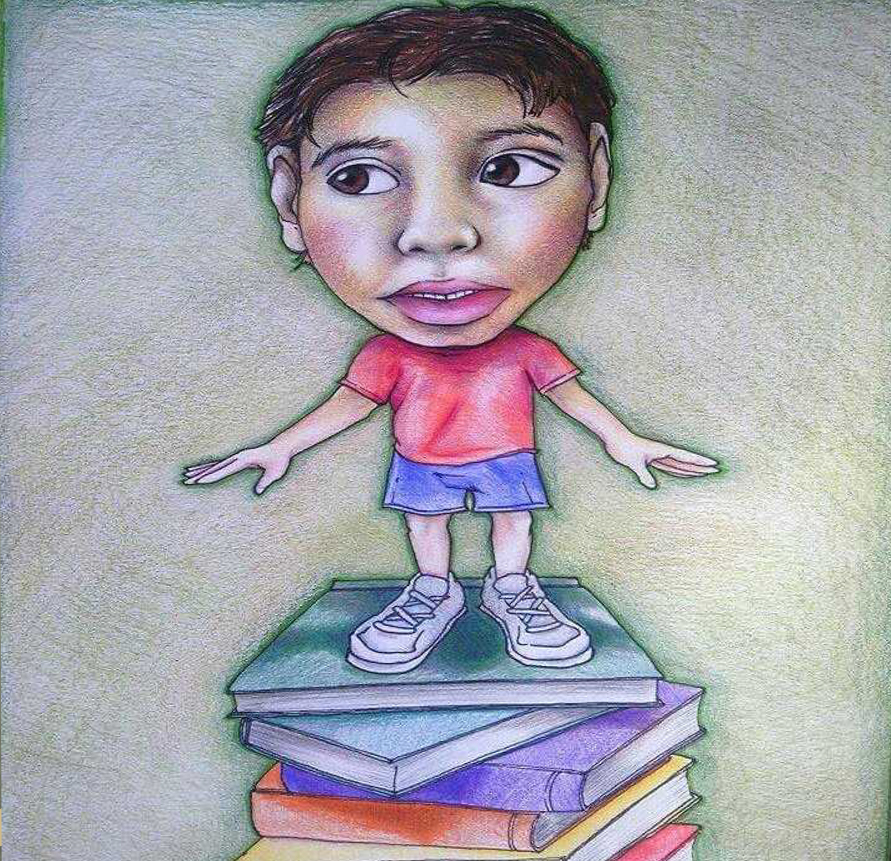Lets face it, getting a kid interested in reading has never been an easy task at the best of times, but in this era of ever decreasing attention spans it can seem impossible even to get a grown adult to read, let alone a young child.
It has now become a matter of evolutionary importance to buck this alarming trend, and with immediate effect. So how do we get our kids focused on reading?
Lets explore a few ideas.
1) Limiting time spent in front of the TV
Starting with the obvious, just don’t let them sit in front of the TV all day. Make sure time is made for outdoor play and reading. I can distinctly remember all my friends having Game Boys when I was younger. There was nothing I wanted more, but my dad was adamant. Play outside, read a book, he would say.
Which I invariably did, not that I didn’t hate him for it at the time, but books became fun, reading became fun.
It probably helped that TV was far more limited back then (we only had 4 channels) and the Internet had barely begun to take hold but that doesn’t mean we aren’t still in control. Switch everything off, grab a couple of books and get stuck in.
2) Create a special place
Kids love dens. The best school libraries have little corners with beanbags that are hidden away from everything. I loved spending playtimes there, reading book after book after book.
See if you can create a similar den with your kids at home, grab an old mattress and flip it upside down to make a tent, hang a blue sheet over it so it feels like you’re under the sea, decorate it with favourite toys and create a little makeshift bookshelf in the corner where you both go to read and hide.
You can make it anything you like! So by making a special place in your home for reading, you start to develop a special place in your kid’s heart, for books. Honestly though, who doesn’t love a den?
3) Book hunts
Now this is a weird one but bear with me. I love the idea behind ‘book crossing’, where people register books online and leave them behind in secret or public places for someone to pick up.
You can then trace your book around the world, watch it travel, and pick one up yourself to read. I think a similar initiative geared at children would be a magnificent idea, not only does it add adventure, it ignites the imagination about the wider world.
I can stare at a map of the world for hours; I don’t think that will ever change.
How wonderful to a child to be able to track the very book in his hands, to see where it has been and where it might go. I think at the end of the day reading is about curiosity, about satisfying a desire to shed light on some unknown, a search for something.
What better way to kindle that curiosity than to literally conduct a search, a hunt that results in a treasure, a book, and the story within; a story that the child will likely cherish far more because he found it.
4) Read to them
This is another obvious one. Read to your children, read with passion and love, read with excitement and energy. Passion is contagious; they will never forget these shared moments.
Visit the library; curate a great selection that you know they will enjoy. Show them how much there is out there, so many different stories, different writers, subjects, and ideas.
Encourage them to make their own choices of what they want you to read to them, that way bedtime won’t come soon enough!
5) Live the stories
Another slightly weird one, but I honestly it works. Live the stories you read together, talk about them, play them out. Bring them to life together, craft experiences that relate to them.
I loved reading stories as a child and seeing them come to life before me, and I would see my life as a story, my life as an adventure just like the one in the books.
It is actually this process that made me want to write my own stories. Nurturing the imagination in this way, bringing it to life, should always have them coming back for more.
It is ultimately the responsibility of the parents to get their children started on reading. One thing is for certain; you can’t rely purely on the school to do the job for you.
Every parent should ultimately know what’s best for their child, but if you make the process fun, create your own adventures and make your own stories, you will never be far off the mark.

